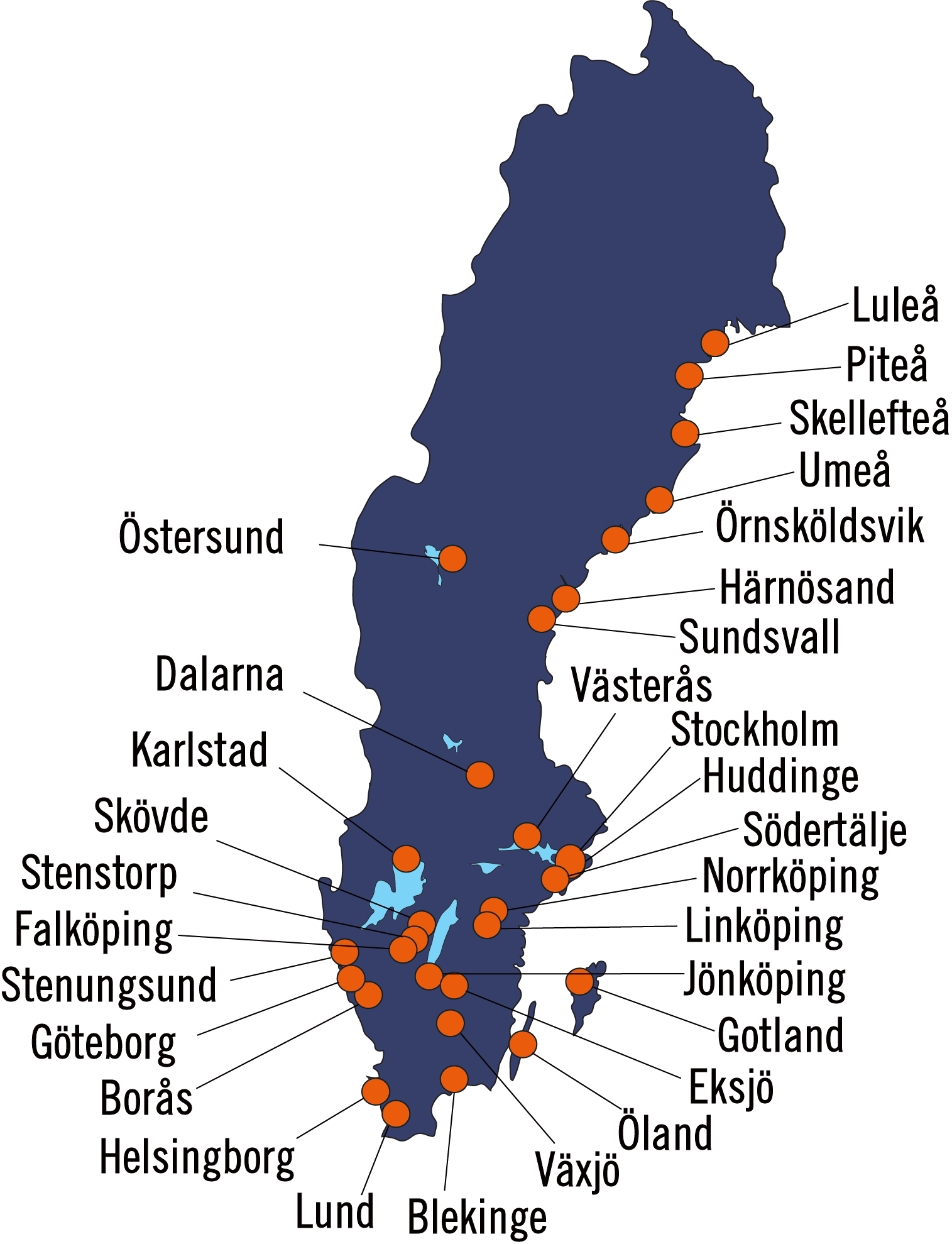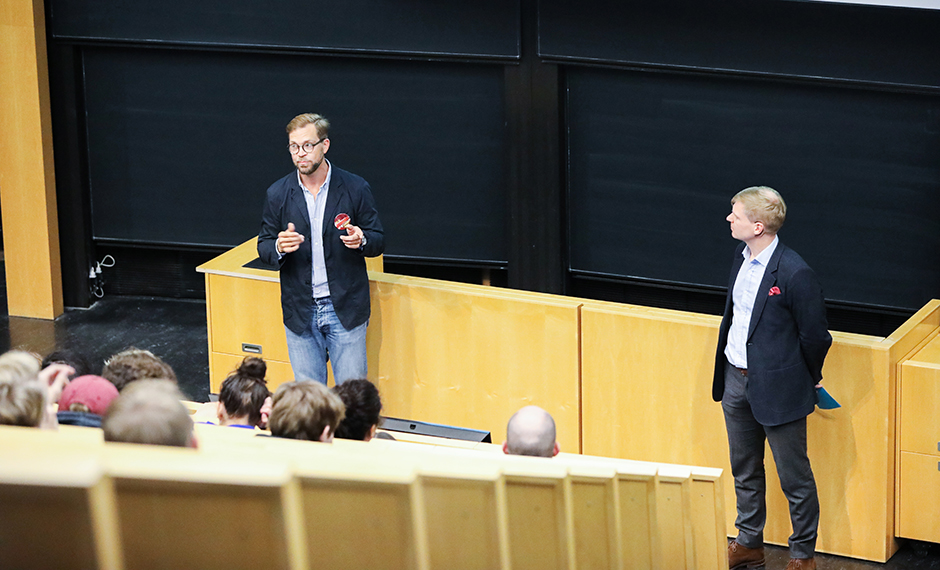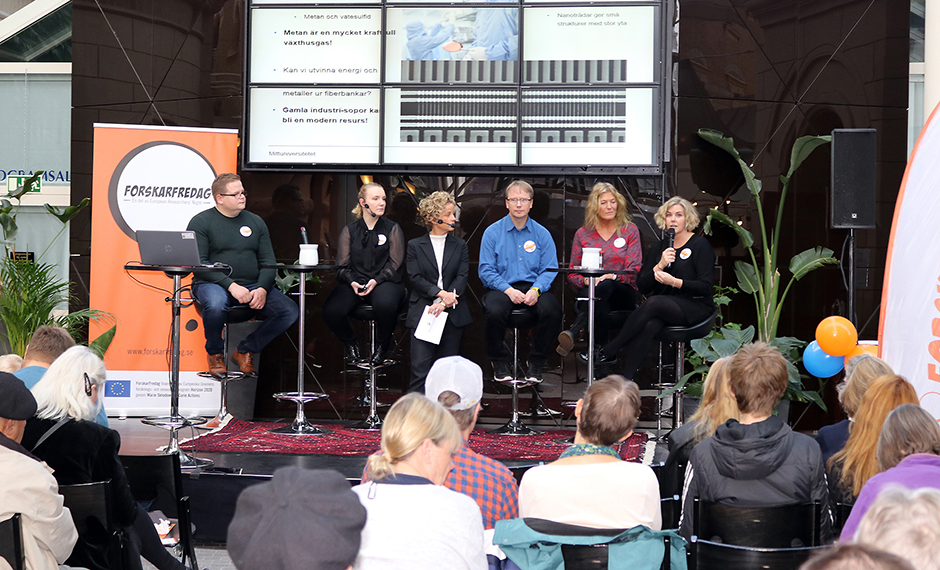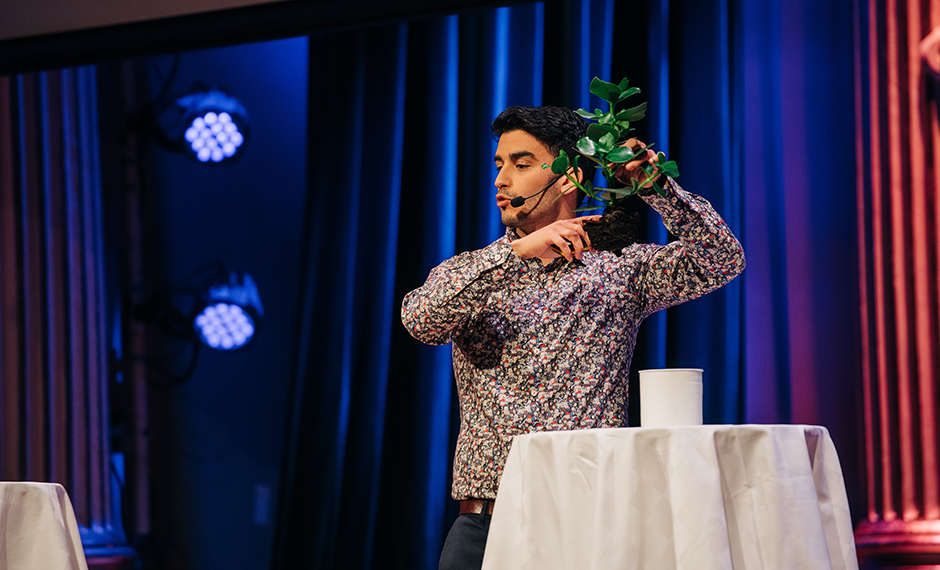European Researchers’ Night activities in Sweden, known as ForskarFredag, in 2019 took place in 30 cities around Sweden and involved over 17,000 visitors and 550 researchers.

Participating cities were Blekinge, Borås, Dalarna, Eksjö, Falköping, Gotland, Gothenburg, Helsingborg, Huddinge, Härnösand, Jönköping, Karlstad, Linköping, Luleå, Lund, Norrköping, Piteå, Skellefteå, Skövde, Stenstorp, Stenungsund, Stockholm, Sundsvall, Södertälje, Umeå, Västerås, Växjö, Öland, Örnsköldsvik and Östersund.
2019 Theme – Space
This year’s theme was ”Space” to celebrate the 50th anniversary of the first moon landing. Events around the country highlighted what it is like to be an astronaut in space, the research taking place on board the international space station, and the mysteries of dark materials and black holes. Visitors could build their own rockets, take planetarium tours around the solar system, view the stars through telescopes and design an astronaut’s helmet. The theme was supported through a collaboration with Sweden’s Day and Night of Astronomy, which took place on the same weekend.


The 2019 citizen science project was also connected to the theme. In the Star-Spotting Experiment school pupils, scout groups, astronomy clubs and the general public were invited to measure light pollution levels locally by counting stars in the night sky.

2019 was also the International Year of the Periodic Table of Chemical Elements to celebrate 150 years since the Russian scientist Dmitri Ivanovich Mendeleev published the first version of the periodic table. This was highlighted through a video competition for pupils, in which participants competed for 5000 SEK for their school and an all-expenses-paid class visit to the closest science centre. Over 250 entries were received and the winner was selected from nine finalists through an online public vote during ForskarFredag.
In total 547 activities were organised during ForskarFredag 2019:
- 243 dialogue activities e.g. lab visits, dialogues in small groups, presentations with questions, after work, after school and science cafés.
- 125 hands on-activities, e.g. experiments, lego robot programming, VR, workshops.
- 68 shows e.g. science slam, Researchers’ Grand Prix, physics and chemistry shows, and theatre performances.
- 60 games and competitions.
- 51 other activities e.g. exhibitions, guided tours around labs, and researchers visiting schools (Borrow a Researcher).
Examples of activities:
- Sustainable development in Blekinge with Blekinge Archipelago
- Inauguration of the science centre Kreativum’s new space exhibition in Karlshamn
- Analysing everyday crimes using Artificial Intelligence
- The scientific exploration game Expedition Mundus
- Fascinating physics experiments
- Genetics disaster – how a bad harvest in the 19th century changed the grain in Norrland
- What happens if the sun dies?
- Learn more about the body’s waste disposal system
- Borrow a researcher from Borås University
- Can robots help children with autism?
- Health and environmental research at SciLifeLab in Solna
- Science After Work
- New technologies and musical creation
- Chemistry and physics shows for the whole family
- Speed-dating with researchers
- Robots of the future and intelligent cars
- Cultural heritage and space: A long shared history
- The hunt for ladybirds in the wild




The Researchers’ Grand Prix is a competition where researchers are challenged to present their research on stage in as captivating, inspiring and educational a way possible – in just four minutes. A public audience, together with three expert judges, decides the winner. In 2019, regional heats were held in Blekinge, Borås, Helsingborg, Skövde, Stockholm and Västerås. In total, 32 researchers participated and received training in presenting their research on stage. The winners of the regional heats participated in the national final in Stockholm in November.

